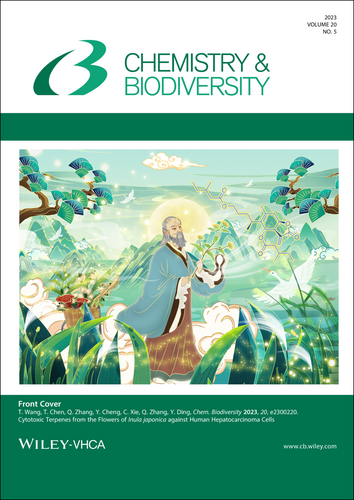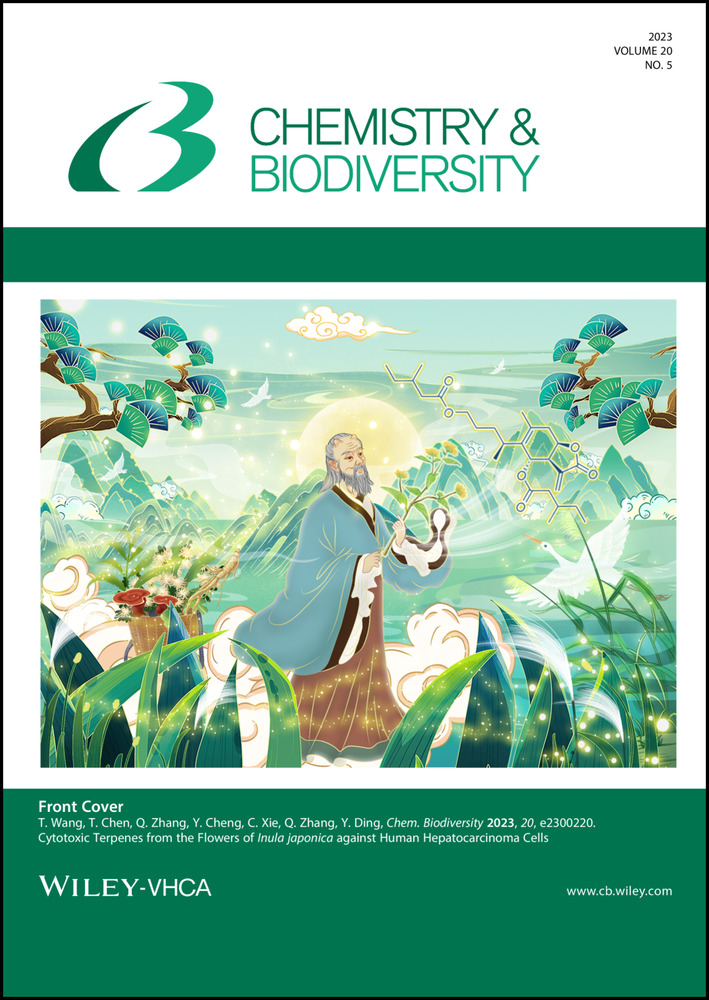Front Cover: Cytotoxic Terpenes from the Flowers of Inula japonica against Human Hepatocarcinoma Cells (Chem. Biodiversity 5/2023)
Graphical Abstract
Front Cover. Two new 1,10-seco-eudesmanolides were isolated from the flowers of Inula japonica together with two eudesmanolide analogs and two monoterpene derivatives. Japonipene B exhibited the most potent effect against HepG2 and SMMC-7721 cells. Furthermore, japonipene B showed significant efficacies of arresting the cell cycle at the S/G2-M stages, inducing mitochondria-mediated apoptosis, and inhibiting cell migration in HepG2 cells. These studies indicated that japonipene B might be considered as a potential lead compound for ultimate discovery of anti-hepatocarcinoma agents, as reported by Ding et al. in their research article at 10.1002/cbdv.202300220.





